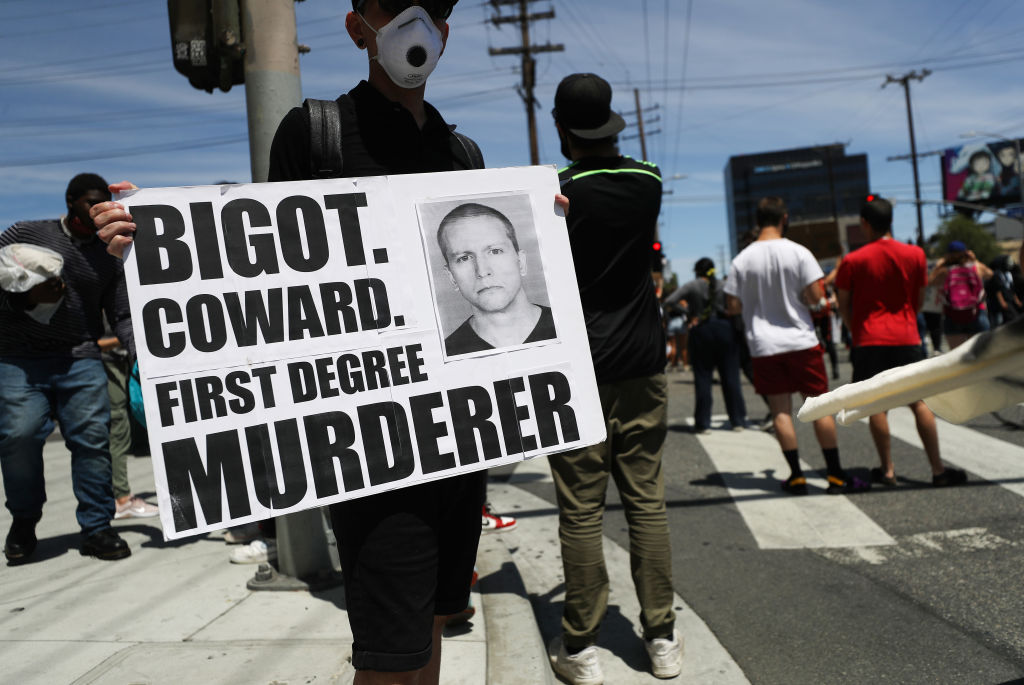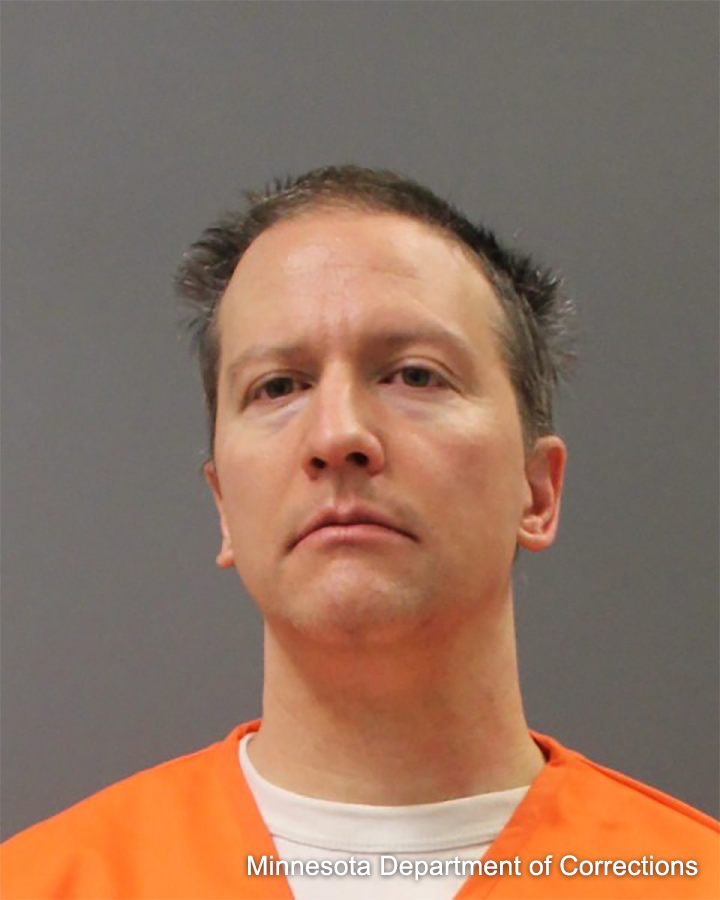Derek Chauvin Appeals Update: Courts Keep Declining Attempts
Take The Hint: Courts Keep Declining Derek Chauvin’s Desperate Appeals Of George Floyd Murder Convictions

Source: Mario Tama / Getty
Aside from being in prison, Derek Chauvin is apparently also in a state of deep denial.
Perhaps Monday’s decision by the U.S. Supreme Court to decline to hear the latest appeal of his conviction for murdering George Floyd in Minneapolis will help remove any doubt from Chauvin’s depraved mind that he won’t serve every second of his concurrent state and federal sentences.
In case you missed it, the U.S. Supreme Court on Monday notably included Chauvin’s appeal among a list of dozens of other cases it has absolutely no intention of hearing.
Chauvin and his lawyers last week filed a motion to vacate his federal sentence, but the prospect of that happening was quickly quashed by the nation’s top court, which didn’t issue a statement about its decision.
It was the latest attempt at an appeal by Chauvin that has been decidedly rebuffed in one way or another. And if that history is any indication, Chauvin had better get used to the confines of his prison cell because it’s likely he will serve the entirety of his decades-long prison sentence.

Source: Minnesota Department of Corrections
After all, it was only in April of this year when the Minnesota Court of Appeals rejected an appeal of his conviction and instead ruled that Chauvin is still a murderer who killed Floyd by pressing his knee into the unarmed and handcuffed Black man’s neck for the better part of 10 minutes while a crowd (and eventually, the world) watched in horror.
In that instance, the court rejected Chauvin’s petition to throw out his conviction, which argued that he was unable to get a fair trial due to media coverage and the threat of protests.
Even if, by some twist of white supremacist fate, he had successfully appealed his state conviction, he would still have to serve the 21-year sentence he was handed after he pleaded guilty in federal court to violating Floyd’s civil rights – a sentence that was effectively also upheld on Monday after the Supreme Court declined to hear Chauvin’s appeal.
In July of this year, the Minnesota Supreme Court issued an order denying Chauvin’s appeal petition for further review, meaning his last hope was with the U.S. Supreme Court.
Chauvin’s attorneys have argued that his trial was “structurally defective” due to reasons that include “extensive pretrial publicity and protests outside the courthouse, as well as the city’s announcement during jury selection that it would pay a $27 million settlement to Floyd’s family.”
Their filing also included allegations of prosecutorial misconduct. Chauvin’s attorneys claimed state attorneys “failed to properly disclose discovery information and adequately prepare prosecution witnesses.”
Conspicuously, in both appeals, there was no mention of Chauvin ignoring Floyd repeating that he couldn’t breathe as the ex-cop applied an illegal chokehold kneeling restraint that proved deadly.
As it stands now, Chauvin, 47, isn’t expected to be released from prison until 2043 following the completion of his 22.5-year-long state prison sentence along with his 21-year federal sentence.
SEE ALSO:
Civil Rights Leaders Mark 3rd Anniversary Of George Floyd’s Murder
Minneapolis Police Reform: What To Know About The Approved Public Safety Overhauling



















